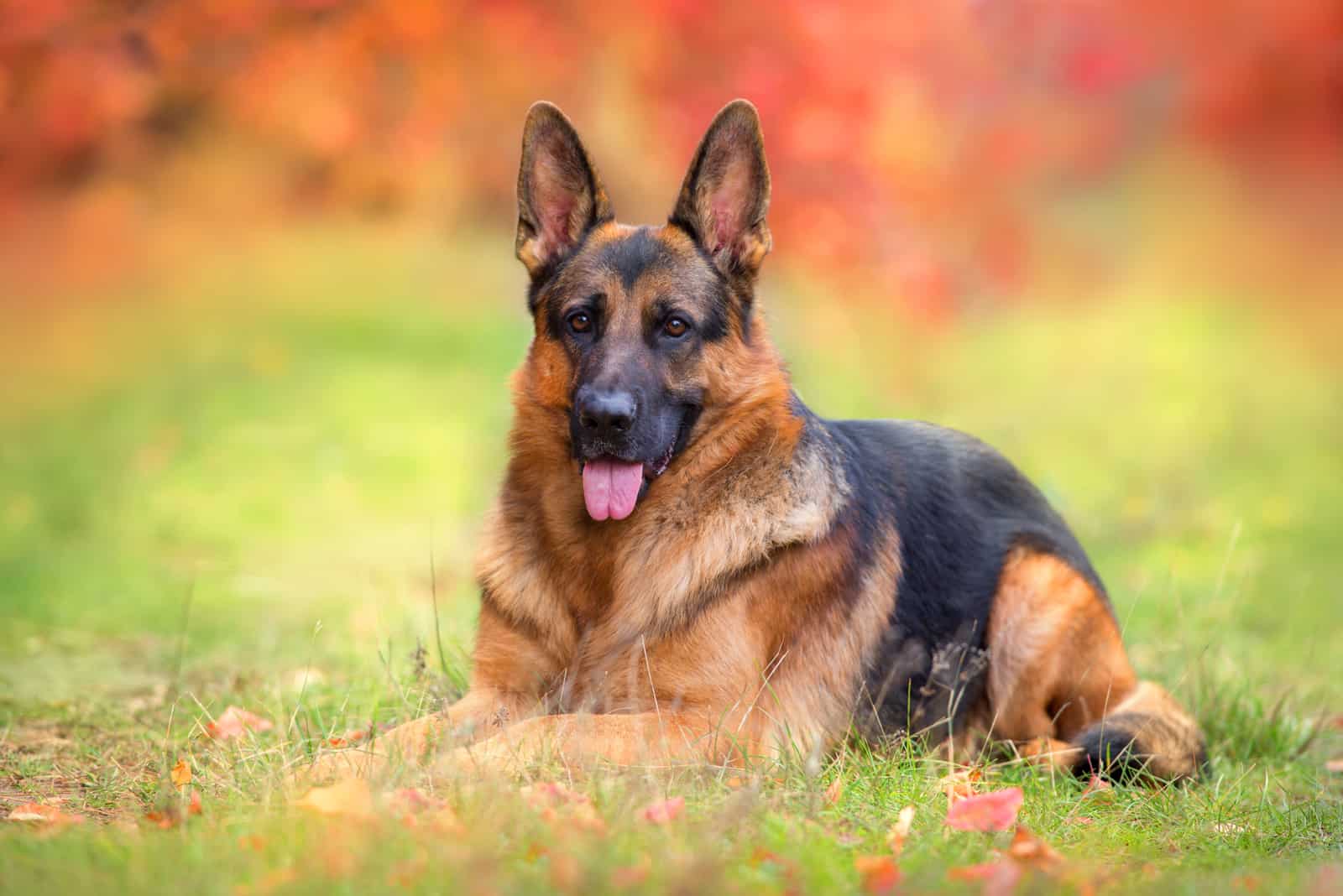It is never easy to talk about a serious topic like German Shepherd cancer symptoms, but it is imperative to know all the signs of cancer in dogs so that we can hopefully notice it in its early stages.
Tumors or cancer (malignant tumors) is a disease that can affect both old and young German Shepherd dogs. It is also a disease that can affect all breeds of dogs; however, large breeds like GSDs or Golden Retrievers are at high risk of canine cancer.
The symptoms we will mention can also be signs of some other disease, but when combined together, or when just some of them happen at the same time — they are a sign of a much more serious disease.
German Shepherd cancer symptoms can be applied to other dogs as well. We are talking about GSDs because they are not only at a higher risk, but they are one of the most popular dog breeds in the world.
Without further ado, let’s see what the 15 German Shepherd cancer symptoms are that you need to hear about.
German Shepherd Cancer Symptoms
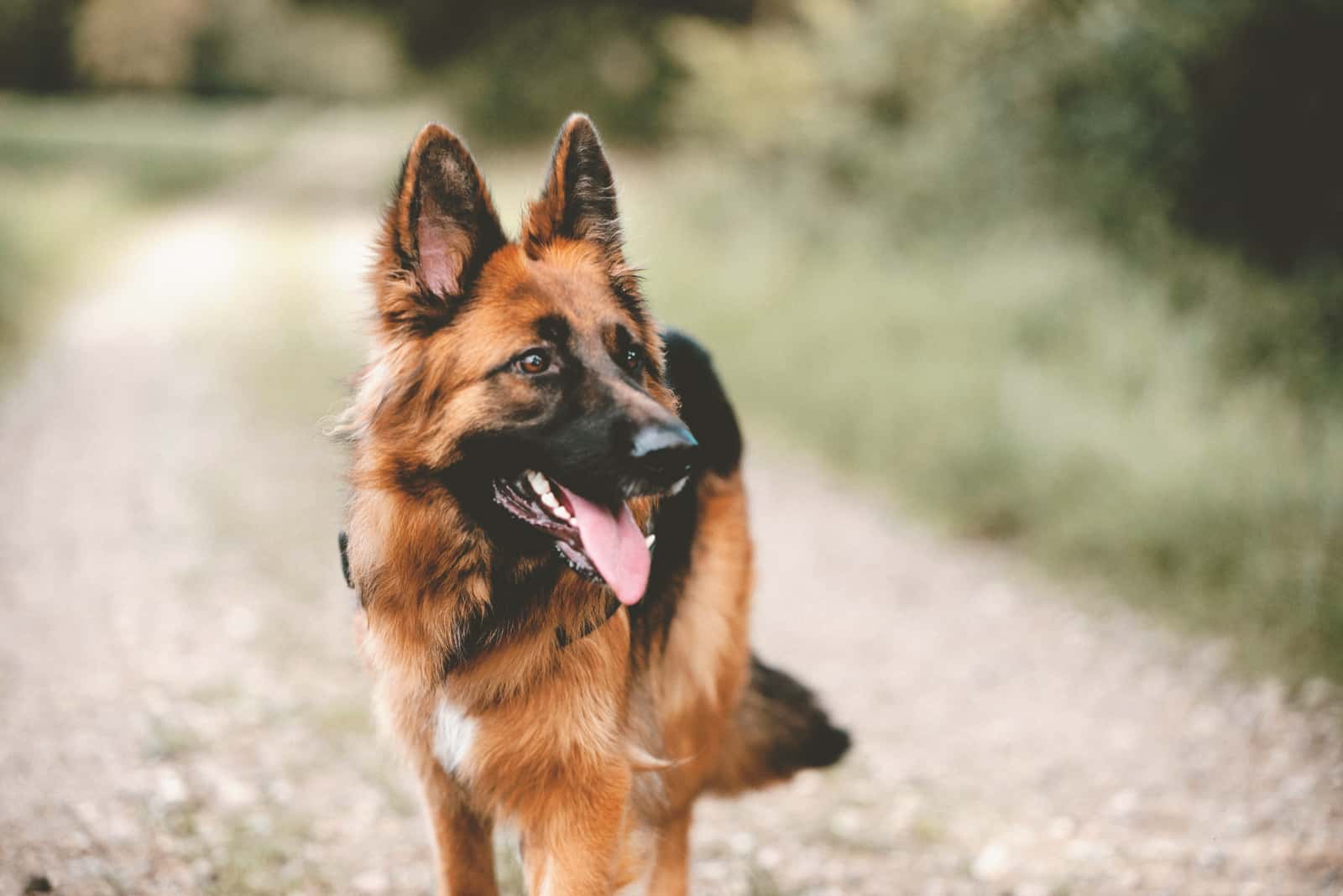
First of all, the German Shepherd is a large, calm, and confident dog that won’t whine and fuss a lot if it is experiencing any kind of trouble. Most dogs won’t, but some might act strange or weird all of a sudden.
However, there are warning signs we have to know in order to be able to see them in time and help the vet in the early detection of this serious disease. The symptoms are usually seen in older dogs because their immune system is weaker, and thus, more susceptible to malignant changes.
But, dog cancer can also affect young dogs or adult dogs. That’s why we are going to arm ourselves with knowledge against cancer cells and learn about the common signs of German Shepherd cancer symptoms.
1. Lethargy
This German Shepherd cancer symptom is not specific to one or two diseases. Unfortunately, lethargy in dogs is a sign of many types of health conditions — from a lack of vitamins to cancer.
However, in highly active dogs like GSDs, lethargy is usually a more worrying sign. We’ve gotten used to our dog’s high energy so when he doesn’t want to play or feels tired all the time — it is time to take him to the vet.
2. Lack Of Interaction
Lethargy often goes hand in hand with the lack of interaction or lack of desire to interact with you (the pet owner) or other dogs or pets. If you have a well-socialized German Shepherd that loved to show affection and loved to interact with you, and it stopped doing that all of a sudden…
Something has changed in your dog’s body and it needs immediate attention. However, people don’t think of cancer when they see these changes. Most people think it’s some kind of viral or bacterial disease, or that their doggo ate something bad.
And, they are right because a lack of interest is not enough to say with certainty “yes, it is cancer.” We need more proof, and we will talk about it later.
3. Weight Loss
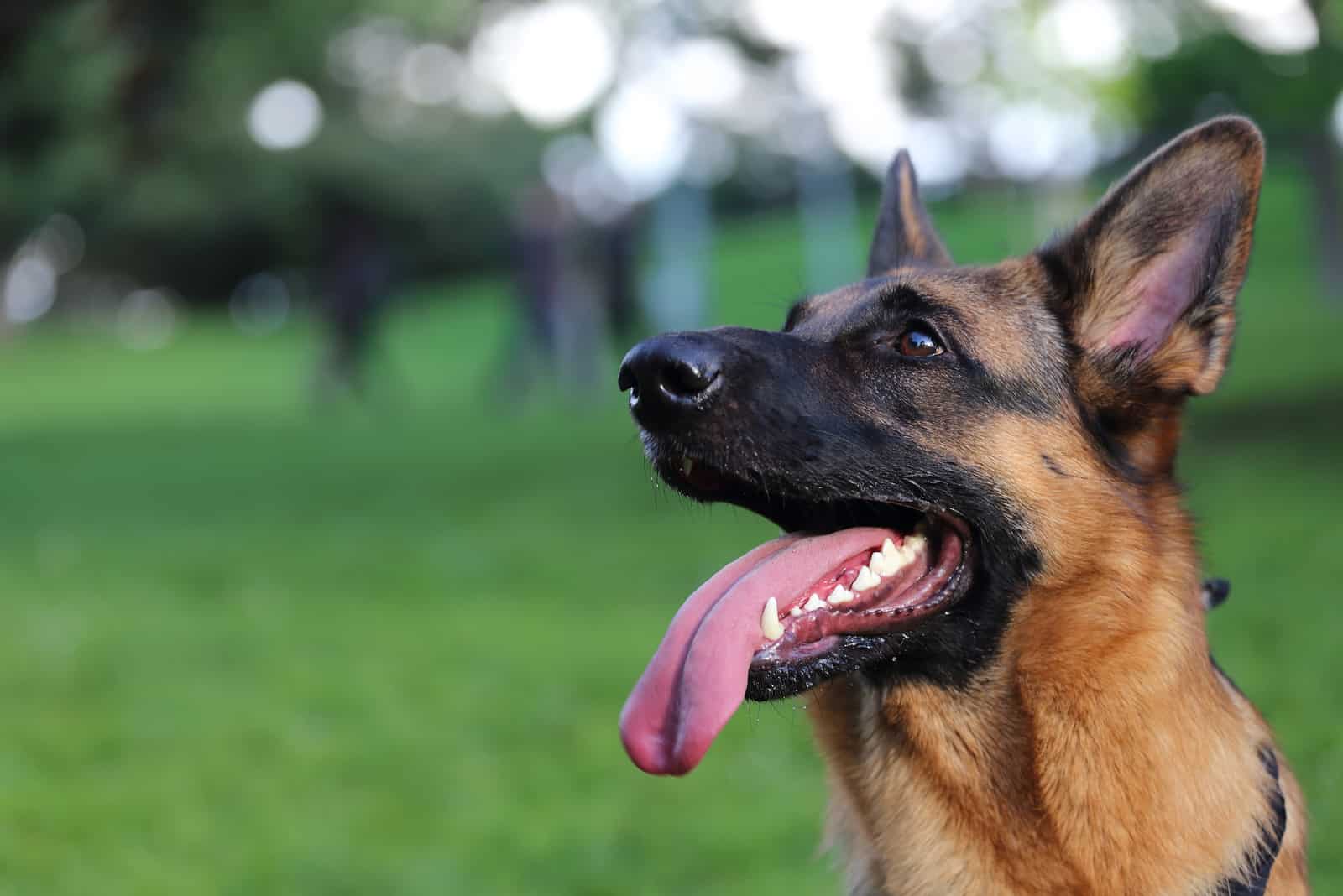
When we talk about weight loss as being one of the German Shepherd cancer symptoms, we mean rapid weight loss, even though the appetite has not changed.
We didn’t change our dog’s diet, and our dog had no problems eating its delicious dog food before. However, our GSD seems to be losing weight without explanation.
In some cases, we can have the opposite effect — weight gain. This happens when the tumor mass prevents normal drainage, which causes a rise in pressure and liquid accumulation in some parts of the body.
This leads to the seeming weight gain or bloat-like appearance of our dogs.
4. Changes In The Oral Cavity
When you want to check if your German Shepherd has another sign of cancer, check its oral cavity. You are looking for any kind of change or abnormality:
- Swollen areas
- Loose teeth
- Bleeding gums
- Excessive drooling
- Changes in the color of the oral tissue
If you notice anything out of the ordinary, you need to take your dog to the vet. It might be a simple drooling problem because of a foreign object stuck in the gingiva, or it might be another sign of cancer.
5. Discharge
A discharge can mean many things. It depends on what type it is, how much there is, and where it comes from.
A nosebleed and a discharge that happens when your dog has a cold are not the same. It is also not the same to have a discharge from an ear, the nose, or the mouth.
So, if you notice your dog’s ear, anal, or vaginal discharge, or any other suspicious discharge — contact your veterinarian.
6. Skin Lumps or Bumps
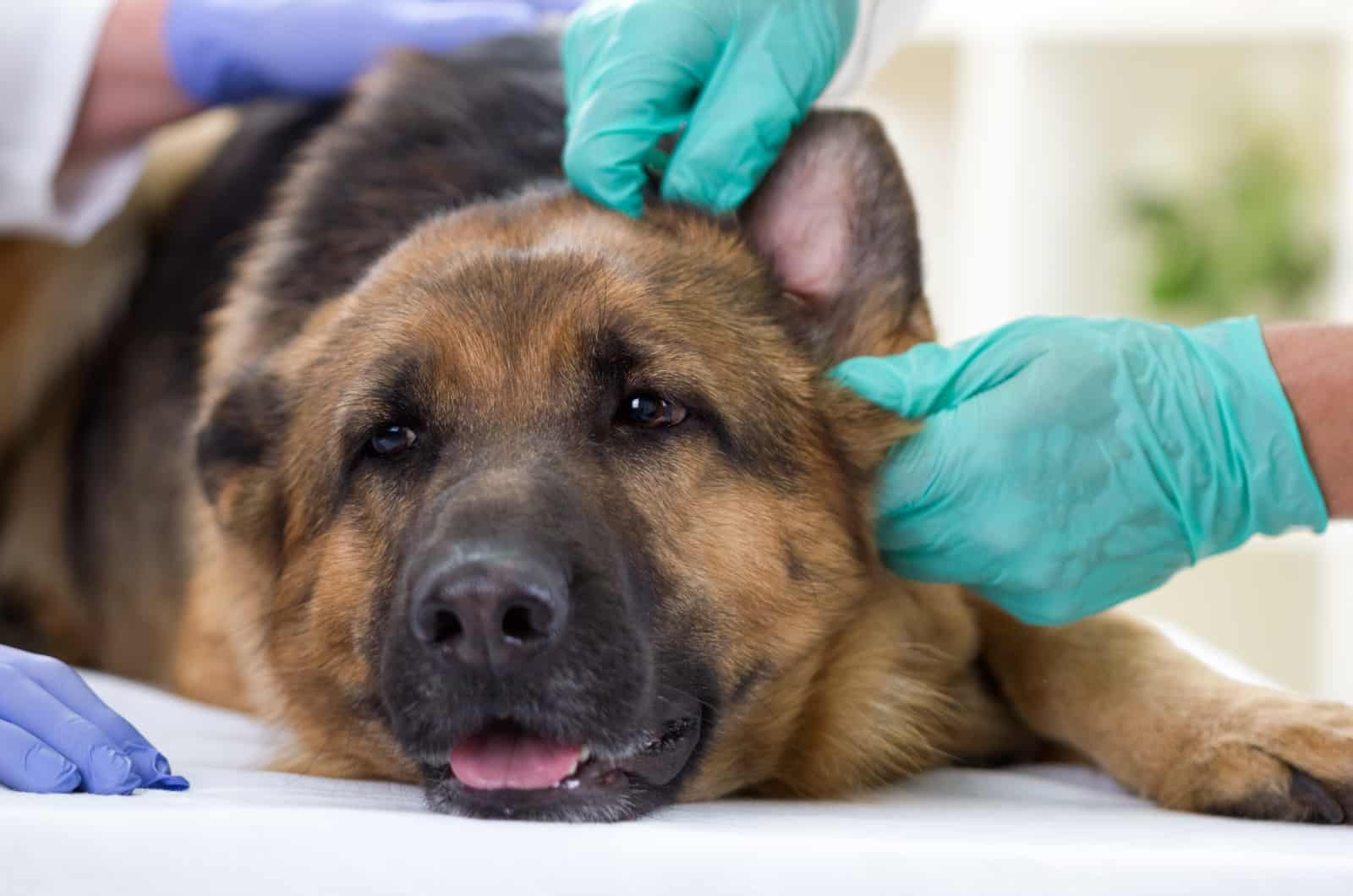
A tumor is a mass that keeps on growing. The cells proliferate and multiply rapidly, especially if they are malignant and not benign.
Such mass can cause lumps or bumps on any part of your dog’s body. The usual parts are on your dog’s neck or abdomen, but there are no rules. You can notice them anywhere, and they can either be hard or soft when you touch them.
7. Skin Lesions
Another German Shepherd cancer symptom is lesions on your dog’s skin. The problem with these lesions is that they cannot heal no matter how long we treat them.
They can either have a clear or a bloody discharge, and they can have secondary infections as a result of the weak immune system of your dog.
If the skin lesion is not healing after two weeks of treatment, contact your vet.
8. Problems Urinating/Defecating
A dog with various types of cancer can show signs of difficult defecation or urination. It doesn’t have to be a blood vessel tumor (hemangiosarcoma) in the bladder, it can be osteosarcoma (bone cancer) that metastasized.
You may notice your dog poops clear liquid, has diarrhea, or it strains to defecate. It can also urinate often or feel pain during it.
9. Problems Swallowing/Eating
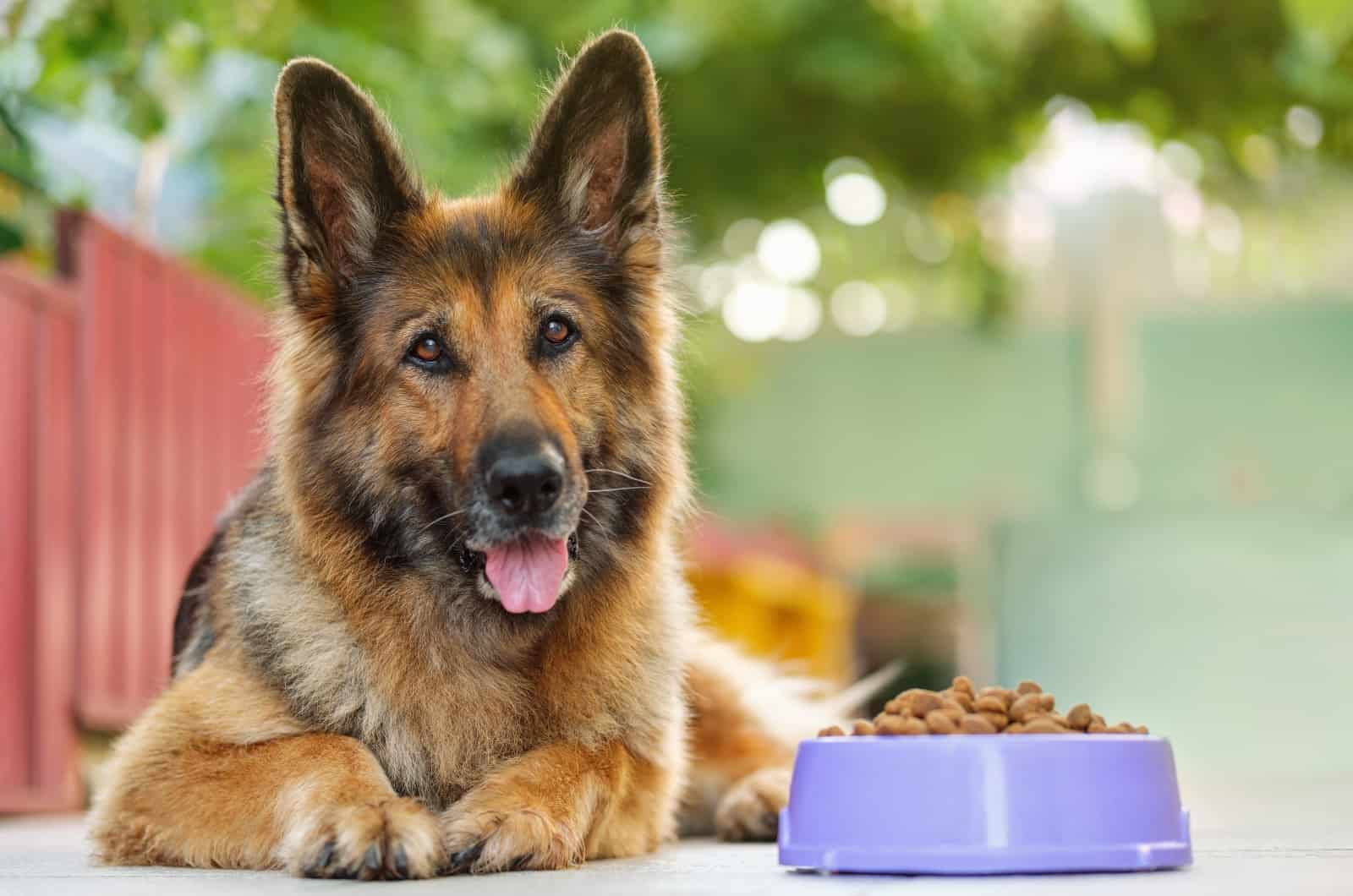
When you notice your dog has problems eating or swallowing, check its oral cavity first. Maybe there is something stuck in its mouth or it has a tooth that is causing problems.
However, if you can’t find a problem inside your dog’s mouth, or you find something and you have no idea what it is, but it looks odd — a trip to the vet is necessary.
The problem doesn’t have to be located in the oral cavity, it can be in any other part of the digestive tract.
10. Problems Breathing/Coughing
Is your GSD breathing fast, coughing, or having difficulty breathing? Wheezing and trouble during breathing can be a German Shepherd cancer symptom that needs immediate veterinary care.
Who knows… maybe it’s not cancer. Maybe your dog inhaled something and it got stuck somewhere in the airway. Either way, you need professional help — and quick.
11. Bad Odor
This refers not only to your dog having bad breath, but to the general bad odor of the entire dog’s body.
Your dog’s immune system is weak, and it’s fighting on all fronts, making it impossible to win all the battles at the same time. That’s why secondary infections happen causing all kinds of smells, from your dog smelling like Fritos to smelling like fish.
12. Pain
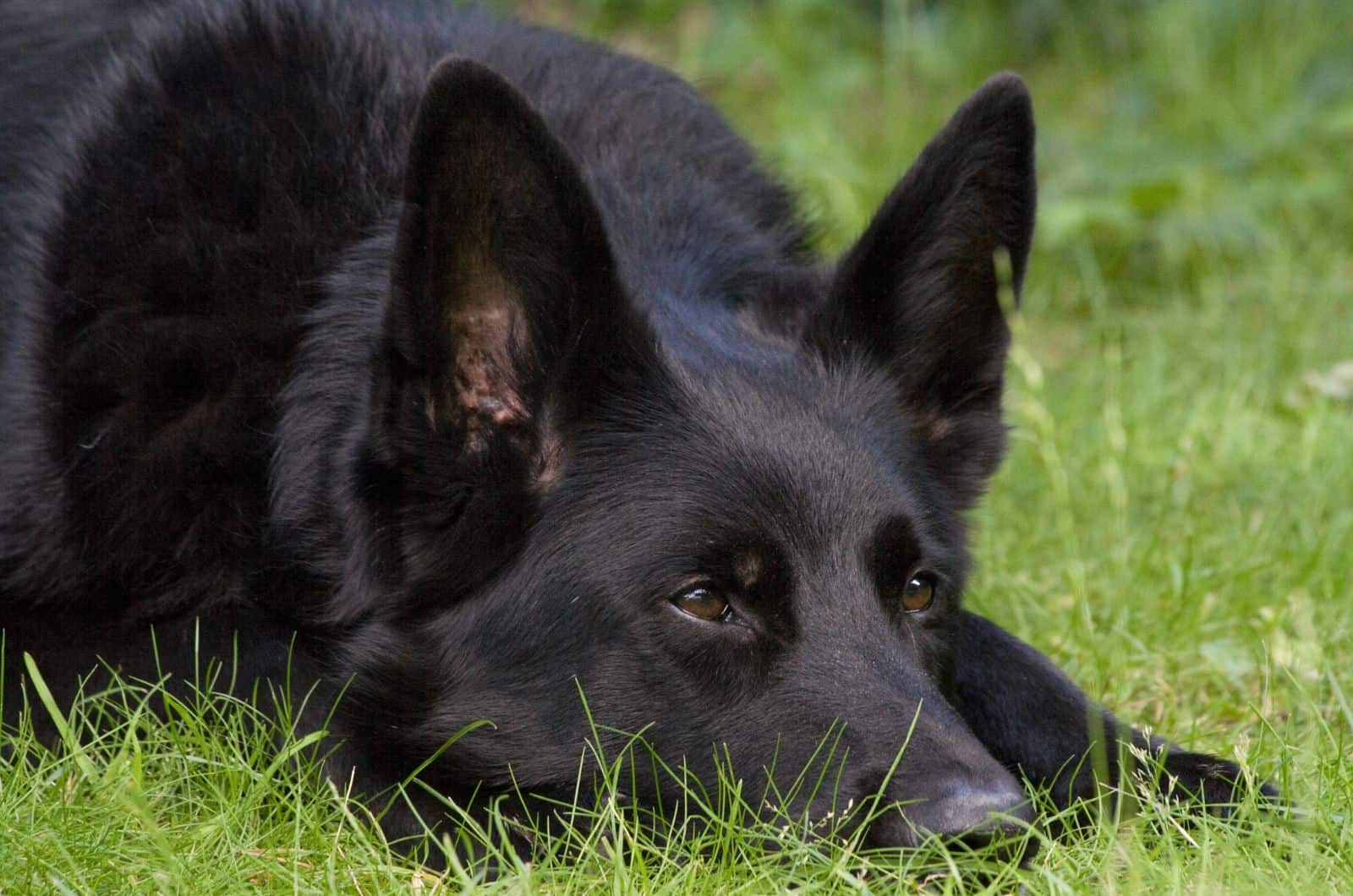
This German Shepherd cancer symptom can heavily change the quality of life of your dog. Pain causes anxiety and stress as well as restlessness, helping the disease in its battle.
Of course, pain doesn’t mean your dog has cancer 100%, but if you do notice your dog is in pain, don’t hesitate to take him to the vet, especially if you notice some other mentioned symptoms.
13. Limping/Stiffness
A dog with bone or joint problems will show signs of lameness, stiffness, and limping. It could mean other things, like hip dysplasia, which is common in GSDs.
However, if it’s osteosarcoma, limping and avoiding use of the affected leg will also be present in the clinical picture.
These signs are connected with pain. Your dog is experiencing a lot of pain, which prevents him from using the affected leg(s) appropriately.
14. Seizures
If you see your dog falling down, drooling excessively, not being able to focus its gaze, having muscle spasms, etc. — your dog might have a form of seizure.
Seizures don’t have to be connected with tumors, but they can be a clear sign of one, especially if your dog hasn’t had seizures before.
Your dog can also have epilepsy, but it’s on the DVM to make the diagnosis.
15. Collapse
This German Shepherd’s cancer symptom is similar to people fainting. However, the difference is that a dog might also have diarrhea or it can vomit.
It might look like a seizure, but in a collapse, a dog’s muscles spasm. The dog’s body is limp, and he cannot rise up on his feet.
Even if your first thought is not cancer, taking your dog to a vet is very important.
Cancer Treatment Options
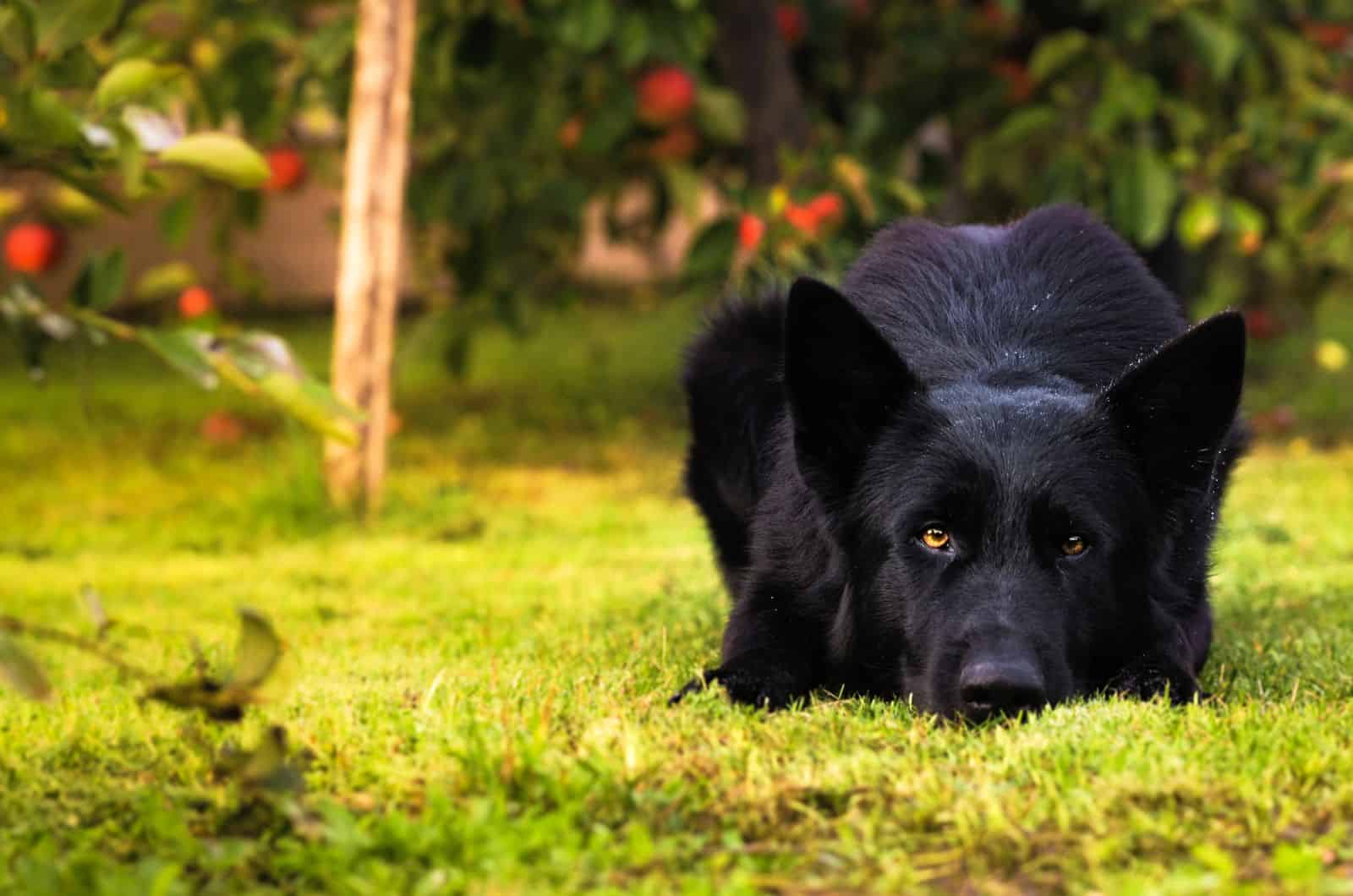
After diagnosing cancer (done by a professional), there are treatment options an oncologist or oncology specialist can perform to try and cure the dog.
There are two options:
- Radiation therapy
- Surgical removal
Which one will be used depends on your dog’s health, and how big the tumor mass is. It also depends on where it is located, how old your dog is, and whether the mass is benign or malignant.
The Conclusion
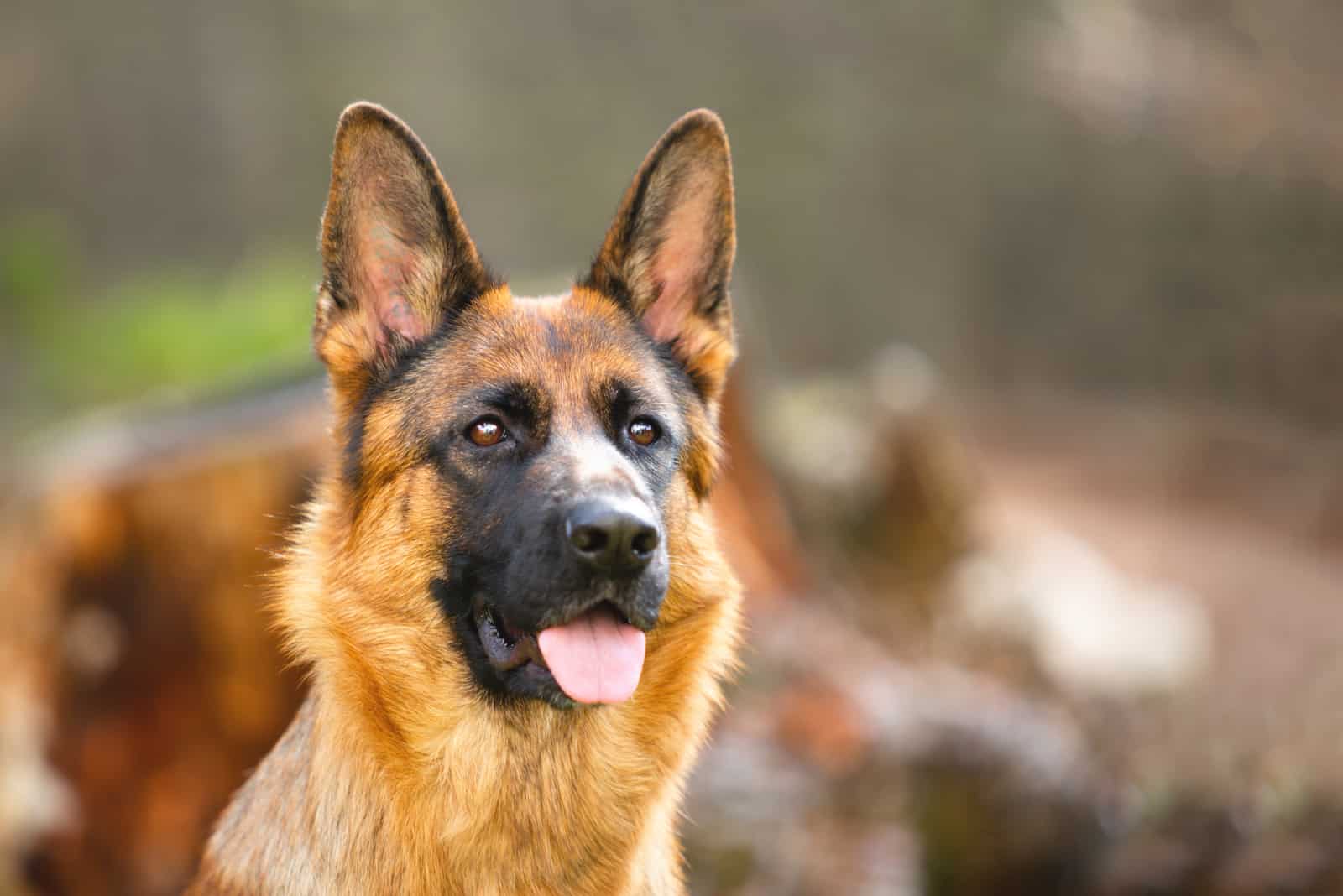
Knowing German Shepherd cancer symptoms is very important if you own or you plan on owning a GSD. Why?
Because according to the American Kennel Club (AKC), cancer is the leading cause of death in senior dogs.
We already said it can happen in younger dogs as well, and also in other dog breeds. But, senior dogs and large dogs are at a higher risk.
German Shepherds, Boxers, Bernese Mountain dogs, and other large dogs are, for some reason, more prone to it than other dogs. As for GSDs, their short lifespan could be the reason.
Whatever the reason is, all we can do is treat our dogs with excellent care, and learn about the signs so that we can catch the disease in its early stages.
I truly hope you won’t ever see these signs in any of your dogs.
